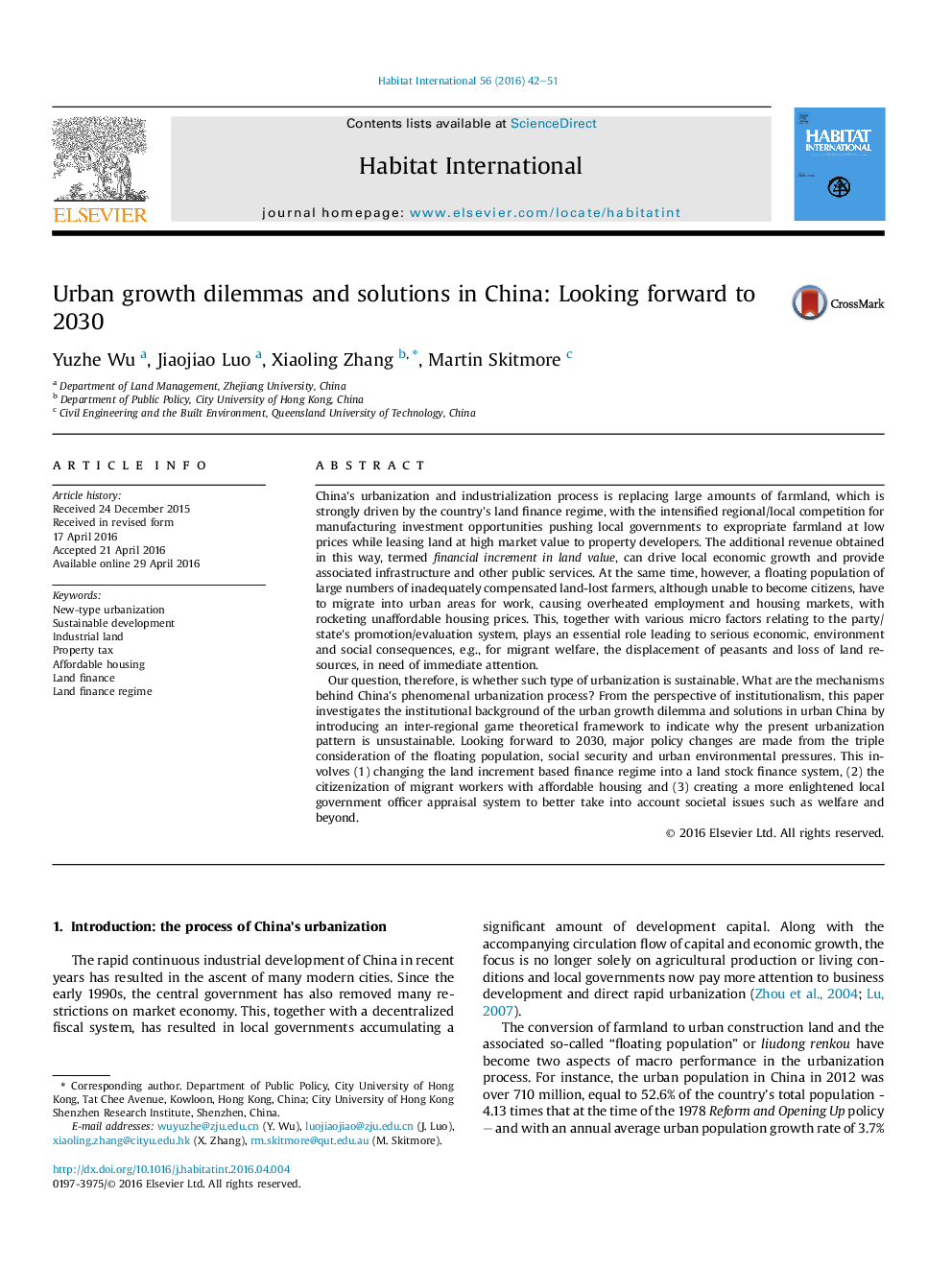| Article ID | Journal | Published Year | Pages | File Type |
|---|---|---|---|---|
| 1047695 | Habitat International | 2016 | 10 Pages |
•We study the roles that labor, land and capital play in urban growth mode.•We study the mechanisms behind the phenomenal urban growth process in China.•Urban growth dilemmas in China are investigated from the institutional background.•Solutions for sustainable urban growth for China are proposed.
China's urbanization and industrialization process is replacing large amounts of farmland, which is strongly driven by the country's land finance regime, with the intensified regional/local competition for manufacturing investment opportunities pushing local governments to expropriate farmland at low prices while leasing land at high market value to property developers. The additional revenue obtained in this way, termed financial increment in land value, can drive local economic growth and provide associated infrastructure and other public services. At the same time, however, a floating population of large numbers of inadequately compensated land-lost farmers, although unable to become citizens, have to migrate into urban areas for work, causing overheated employment and housing markets, with rocketing unaffordable housing prices. This, together with various micro factors relating to the party/state's promotion/evaluation system, plays an essential role leading to serious economic, environment and social consequences, e.g., for migrant welfare, the displacement of peasants and loss of land resources, in need of immediate attention.Our question, therefore, is whether such type of urbanization is sustainable. What are the mechanisms behind China's phenomenal urbanization process? From the perspective of institutionalism, this paper investigates the institutional background of the urban growth dilemma and solutions in urban China by introducing an inter-regional game theoretical framework to indicate why the present urbanization pattern is unsustainable. Looking forward to 2030, major policy changes are made from the triple consideration of the floating population, social security and urban environmental pressures. This involves (1) changing the land increment based finance regime into a land stock finance system, (2) the citizenization of migrant workers with affordable housing and (3) creating a more enlightened local government officer appraisal system to better take into account societal issues such as welfare and beyond.
